Part 1: Can Muslims Impact US Elections?
 {file:content.php} {function:blp_getCustomField} {postID:102062} {customField:theClapCount} {default:0}not-in-use-in-plain-child
{file:content.php} {function:blp_getCustomField} {postID:102062} {customField:theClapCount} {default:0}not-in-use-in-plain-child



In recent years, many Muslim Americans and people of conscience have grown disillusioned with democracy, feeling that their voices are unheard and their votes inconsequential.
However, it is crucial not to abandon this foundational system. Democracy is more than a mechanism for electing leaders; it embodies the principles of freedom, equality, and justice.
Where do we Muslims fit in the electoral process? What role can we play in strengthening our democratic institutions? Where can we be most effective based on our voting presence? We cannot carve out our path without looking at the electoral realities.
In this series on elections, we will examine the demographic and political profile of each state and identify states and districts where our voices can be heard effectively. In the past, only a few thousand votes have decided elections for various candidates.
This first installment in the series serves as an introduction to the electoral battles shaping up in the country.
There are 519,682 elected officials in the US. 96% of them hold local, 3.6 state and 0.1%feseral offices.
The 542 federal offices include the President, Vice President, 100 U.S. Senators (two from each state), 435 U.S. Representatives, four delegates to the House of Representatives from U.S. territories and the District of Columbia, and one Resident Commissioner from the Commonwealth of Puerto Rico.
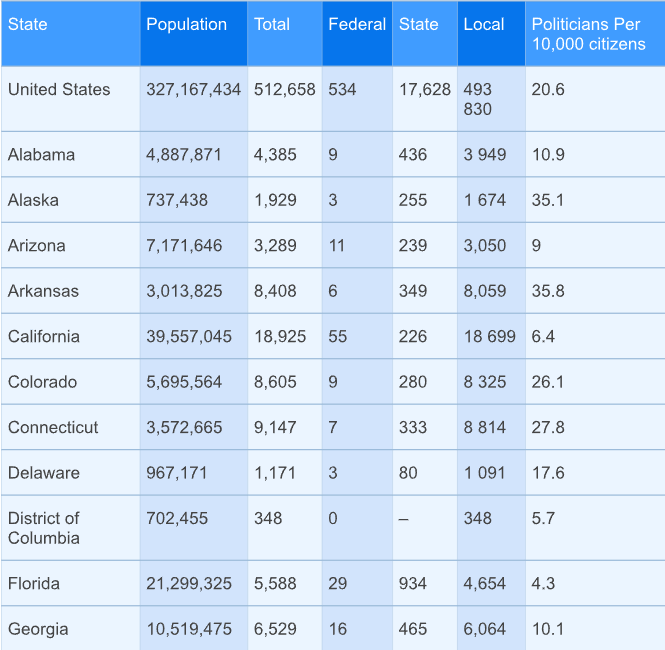


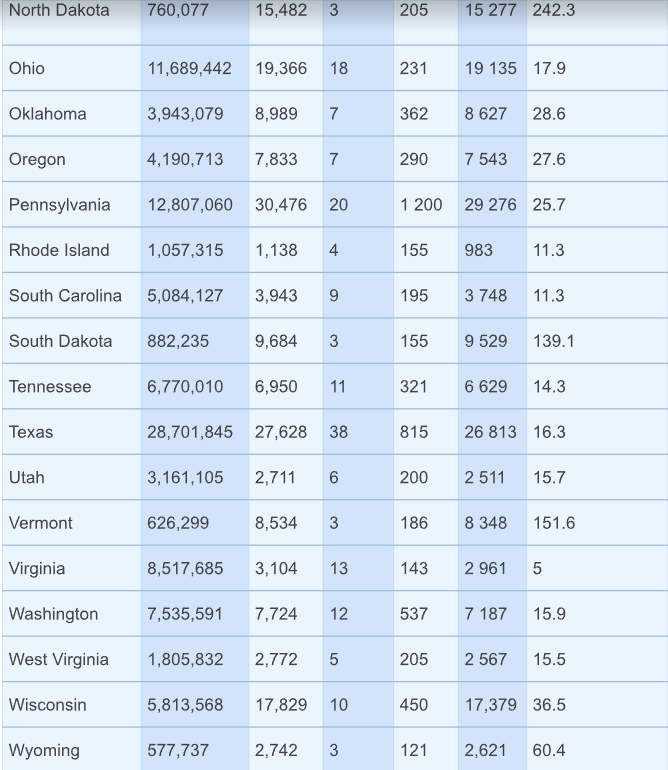
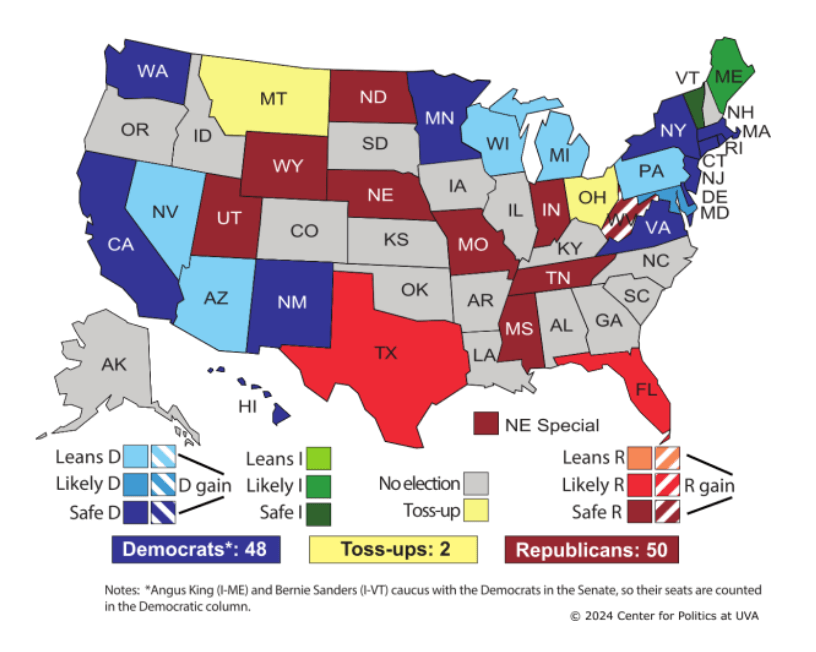
In November 2024, Biden and Trump will essentially fight for 46 seats in the Presidential Electoral College. Ninety-nine of them are in Pennsylvania, 11 in Arizona, 10 in Wisconsin, and 6 in Nevada.
Based on current poll analysis, Republicans have 251 electoral college votes, while Democrats have 24. The situation may change.
Senate Of the 33 Senate races, the Democrats are defending 20, the Republicans 11, and Independents 2, Ohio and Montana's races are toss-ups House Of the 435 House seats, 30 Republicans and 40 Democrats are in contest. Democrats and Republicans are locked in 18 toss-ups. 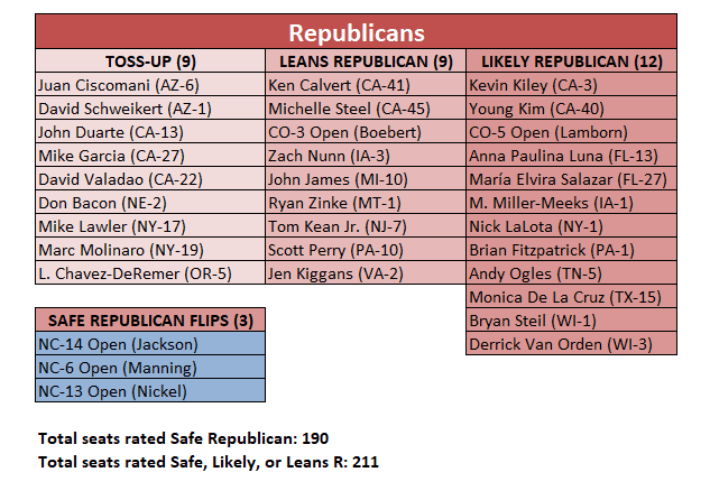
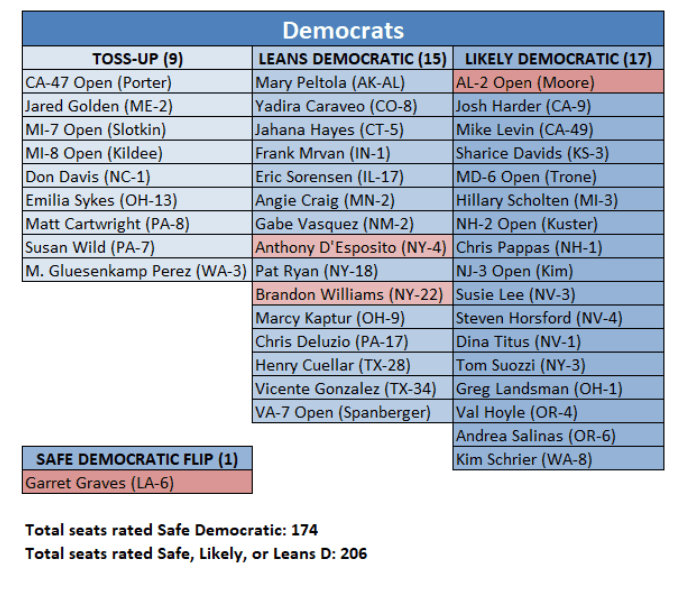
Governor of the eleven states having a gubernatorial election, two have toss-ups. They are Ohio and New Hampshire.
State Legislatures 12 state chambers are competitive—either Lean Republican, Toss-up, or Lean Democratic.
The GOP currently holds 7 of the competitive chambers, while the Democrats hold 4 of the competitive chambers. One other chamber, the Alaska Senate, is controlled by a cross-partisan alliance.
Seven of the competitive chambers are rated Toss-up. This category includes the Alaska Senate, three Republican-held chambers (the Arizona Senate, the Arizona House, and the New Hampshire House), and three Democratic-held chambers (the Michigan House, the Minnesota House, and the Pennsylvania House).
Related Suggestions
In accordance with Title 17 U.S.C. Section 107, and such (and all) material on this site is distributed without profit to those who have expressed a prior interest in receiving the included information for research and educational purposes.














